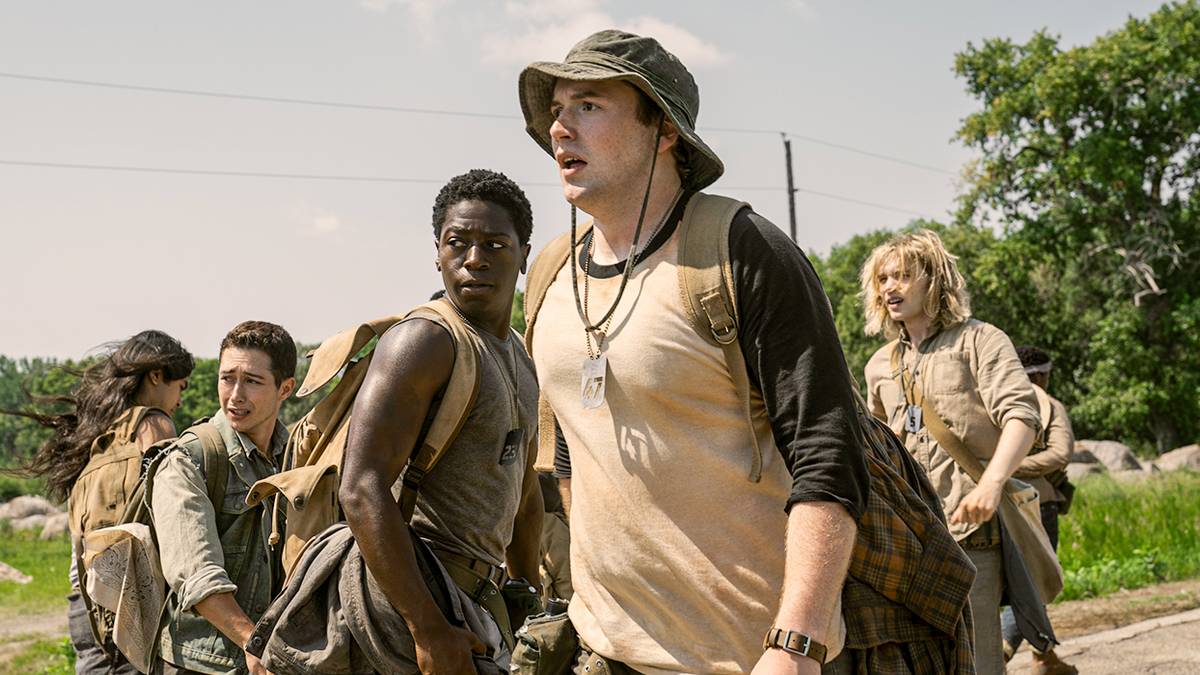
Hot Take, But the Ending of the ‘Long Walk’ Movie Is Even Better Than Stephen King’s Book
Editor’s Note: The following contains spoilers for The Long Walk.
The Long Walk is being lauded as one of the best Stephen King adaptations of all time, being placed in the same ranks as the likes of Stand By Me, Misery, and The Shawshank Redemption. Like many of the author’s stories, the success of The Long Walk comes from its rich characterization and focus on humanity despite its dystopian setting. Despite their shared goals, there is a huge amount of individuality in each of these competitors, and that is heightened in the movie by the commitment in every performance. At the core are the stellar performances of David Jonsson as Peter McVries and Cooper Hoffman as Ray Garraty, who elevate the movie from good to extraordinary, and it is clear the pair are the future of cinema.
However, the success of their portrayal of strangers becoming genuine friends has a much more important impact on the movie, as it is the sole reason the change to the ending transcends the book. Where the focus of the original story is the bleak reality of the competition and the mental toll of repetitive mundanity, in the movie, there is a shift towards the importance of found friendship and camaraderie that makes the final sacrifice a huge gut punch. There is less ambiguity in the revised ending, which makes it thematically rich and emotionally devastating.
How Does ‘The Long Walk’ Novel End?
The original version of The Long Walk, written by King under the pseudonym Richard Bachman, has a totally different victor. The essence of the Stephen King original is clear in the movie; however, the book has a tendency to lean into even more graphic details. Even though the movie does not shy away from the gore, highlighting the injuries the walkers receive along the route, the Stephen King novel pushes this to its extremes, with Olson (Ben Wang) continuing to walk even with his internal organs spilling from his body. This frames the core theme of the novel as more of an examination of society and the limits of human capacity. This bleak analysis is solidified in the final moments of the book.
As he often reiterated to Garraty, McVries decides, when he gets too tired, to simply sit down. He submits to his own fate with total control over his decision, as opposed to letting his body take that decision away from him. However, in the original, McVries’ death leaves Garraty and Stebbins (Garrett Wareing) as the final two competitors. By this moment, Stebbins has already given his speech, admitting he is the Major’s son and has come to the realization that he is only in the race to make it last longer. Armed with this knowledge, after walking a while longer, Garraty decides he cannot go any further and uses his final bit of strength to catch up with Stebbins. As he reaches his competitor, Stebbins drops dead, and Garraty is announced as the winner of the race. However, there is no joy in victory for Garraty as he cannot mentally comprehend the fact, so he continues to walk, brushing off those who go to congratulate him. The final image portrayed by King is a dark figure whom Garraty believes to be another walker still in the race.
The New Ending of ‘The Long Walk’ Is Much More Intimate
The movie chooses to make McVries and Garraty the final walkers, a reflection of their position as the main characters. Although it may seem predictable that they are the ones who survive, it is a logical payoff for the emotional build-up of their connection. The performances of Jonsson and Hoffman make their relationship feel authentic and tender in comparison to the dystopia surrounding them. There are pockets of genuine solidarity that are necessary to make the movie feel as intimate as it does, such as McVries and Garraty leaning on each other as they sleep or McVries dragging Ray away from his mother to protect him from dying in front of her. It shows their friendship in an incredibly personal way, and makes that care they have for each other feel authentic, and consequently strengthens the other bonds formed. When each individual is eliminated from the race, the palpable emotions felt by McVries and Garraty are replicated for the viewer because of the believability in the lead performances.
The final moments of The Long Walk see McVries attempt to sacrifice himself only for Garraty to save him, claiming he wants more time together. However, at this moment of naivety, McVries fails to notice Garraty purposefully falling behind. Garraty explains that, as he is dying, he believes McVries’ optimism means his victory will have a greater chance of bringing about change. The cry of pain and despair as McVries realizes he is losing his friend hurts more than any other death in the movie, even though its inevitability was clear from the start. This is followed by McVries dropping his wish for two victors on future long walks in favor of Garraty’s wish to shoot The Major. It shows the walk has changed McVries; his hope has turned to rage, and he has no care for future walkers, especially now that his closest friend is gone. It is a much more emotionally charged ending, focused on the characters’ narrative arcs as opposed to society as a whole. It fits the turbulent and relentless journey the audience has been on with the group of walkers and is the final sucker punch of reality. Although it still critiques the sick nature of the competition, it shows the heartbreak in a much more intimate way that makes more sense for the character-driven nature of the source material.

- Release Date
-
September 12, 2025
- Runtime
-
108 Minutes
- Director
-
Francis Lawrence
- Producers
-
Roy Lee, Steven Schneider
-

Cooper Hoffman
Raymond Garraty / #47
-

David Jonsson
Peter McVries / #23




